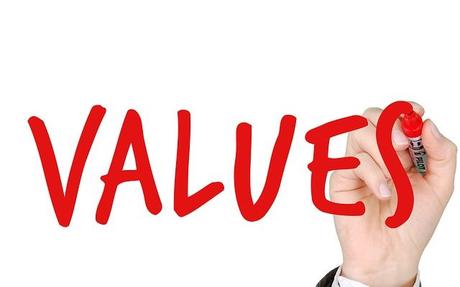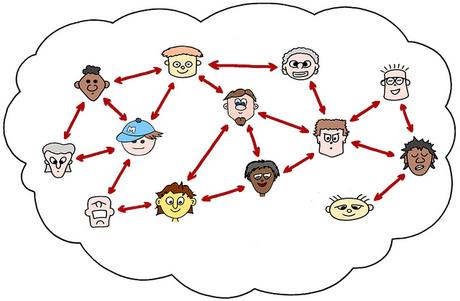
In a way, the pandemic has made job seekers of all ages, regardless of generation, increasingly adopt the job seeking perspectives of Millennials and Gen Z. Meaning that they are becoming more driven by their values and beliefs and less driven merely by salary and career advancement prospects. In short, employees want to work for companies that are aligned with their values. In previous eras, beliefs and values have generally not been the priority, at least not for most average job seekers. And even if they had been there were not really ways to gauge value alignment until you were inside a company, working for it. Fortunately, the times we live in provide ways to make this search for value alignment easier than it's been.
However, while it's true that it's easier to research a company's values and culture than it used to be, there still isn't a single foolproof method. This is why, whether you are just passively looking at job listings or are actively in the process of applying for jobs, you should use a multi-faceted approach to try to get a feel for company value and culture without having to learn by trial-and-error.
The company website and literature
The first place to start is with company produced communication, which for most organizations nowadays would be available on their website. Financial statements and annual reports would be a good place to look as well, just to see what the company puts out about themselves to monetary stakeholders.
It's often said that job searching is a lot like dating, and as with an online dating profile, companies are going to naturally project the best possible images of themselves in any public-facing literature. It might be grounded in reality or it might not be, but the objective at this stage isn't to figure that out yet. The objective here is just to see what kinds of values the organization proclaims for itself. Companies generally have no reason to be intentionally disingenuous because it's not just job seekers who want to find companies where they can fit in with the culture. Companies want this as well since non-alignment increases the chances of turnover, which is costly.

Check job review sites
The next thing you can do is to do a search for the companies on review websites like Glassdoor and Indeed. Approach any reviews you may happen to find with a grain of salt since there's usually no way to know the full stories on any of these reviews. What you are really just looking for are any patterns or recurring themes. Finding a single negative review is one thing. Reading half a dozen reviews that all mention a toxic workplace culture, for example, is something worth noting.
As an extension of job review sites, if the company you are applying to is business-to-consumer, you may also want to check customer review websites such as Google and Yelp. Customers and employees are obviously two very different things. But sometimes you can sense things about a company just by the way it interacts with its customers and by how they address those customers' concerns.
Check mentions and hashtags on social media
For all its potential problems, social media has undeniably done a great deal to up the accountability level of companies in a way that wasn't possible before, with the #MeToo and #BlackLivesMatter movements being two great heralds of this change. Hop onto whatever social channels happen to use-be it Facebook, Twitter, Reddit, or LinkedIn-and look up mentions of, and hashtags related to, the company. Also go to the company's account itself, or the official "help account" if there is one, and see how they respond to customer inquiries (or if they even respond at all). That can sometimes provide some clues too.

On a similar note, you could also try tapping into your personal network by posting open questions on your social accounts asking about the company and what people's experiences with them are, whether it's working for them or doing business with them. Sometimes, even if people in your immediate network don't have direct experience, they might be able to connect you with someone who does. Such personal connections can make a difference with how much people are willing to honestly and openly share their experiences. LinkedIn, in particular, can be a way to tap into the collective knowledge of your network as well. For example, see if anyone who's working for a company went to the same school as you. If so, reach out, introduce yourself, and see if they'd be willing to speak with you about their experiences.
The job interview as research
All of the methods described above can give you a sense of a company, but not a complete or detailed picture. This is why you should approach the interview as part of the research process. Older generations may have approached job interviews as more of a one-sided process. But more than ever job interviews are, and rightfully should be, two-sided processes-again, just like with dating. Respect the interviewer's protocol, naturally. But once you are given an opportunity to ask questions, be tactful but don't be shy.
For example, instead of asking, "What do you dislike about working here?" you can ask, "What kinds of things keep you up at night with regards to your work?" Word your questions in a way that shows you're not expecting or assuming a negative answer. Questions are also not just a way to reveal potentially negative information but positive information as well. You could ask your interviewer how long they've worked at the company, for instance. And then ask what it is about the company that keeps them there.
Relax, nobody's loyal and that's okay
Even job interviews ultimately won't give you as deep an understanding of a company's culture and values as actually working there. No matter how thoroughly you've done your homework, sometimes it takes working there for a few months before you may see any red flags or discrepancies between a company's espoused values and enacted values. Don't be afraid of that happening, and don't let it lead to analysis paralysis in the job searching stage. Among the values you care about, pick just a few that will be your non-negotiables and focus on applying to companies that, as far as you can tell, seem to align with those core values. Then, if you get multiple offers, just pick the one with the company whose values seem most aligned with yours.
It is starting to look like loyalty in the workforce is a thing of the past. In today's environment, both the company and employee are acutely aware that they have options. There needs to be a mutual fit in order to continue in the "relationship". While lack of loyalty can sometimes be a bad thing, it can also be a good thing. It means that if you end up at a company whose actual, lived values are different from what it presented them as being, just look at it as a temporary stopping point to build up some skills. Then, once you're ready, start the job searching process over again. As with many things in life, it's a numbers game. You're bound to get it right if you keep at it.
This guest post was authored by Dr Yuvay Meyers Ferguson
Yuvay is the Assistant Dean of Impact and Engagement and an Associate Professor teaching Marketing Communications & Strategy at Howard University's School of Business. Yuvay also holds a Bachelor's degree in International Business Marketing and a Master's degree in Public Communications. With experience in advertising for clients such as the American Red Cross and BellSouth, her research focuses on the representation of Blacks and Millennials in advertising and their consumer behavior in the marketplace. Yuvay is uniquely qualified to comment on what companies can to do prepare for the wave of Gen Zers entering the workforce.

Ms. Career Girl was started in 2008 to help ambitious young professional women figure out who they are, what they want and how to get it.

